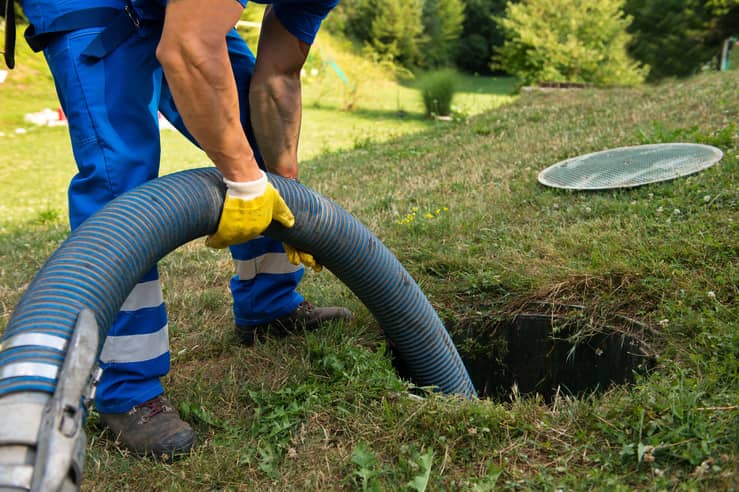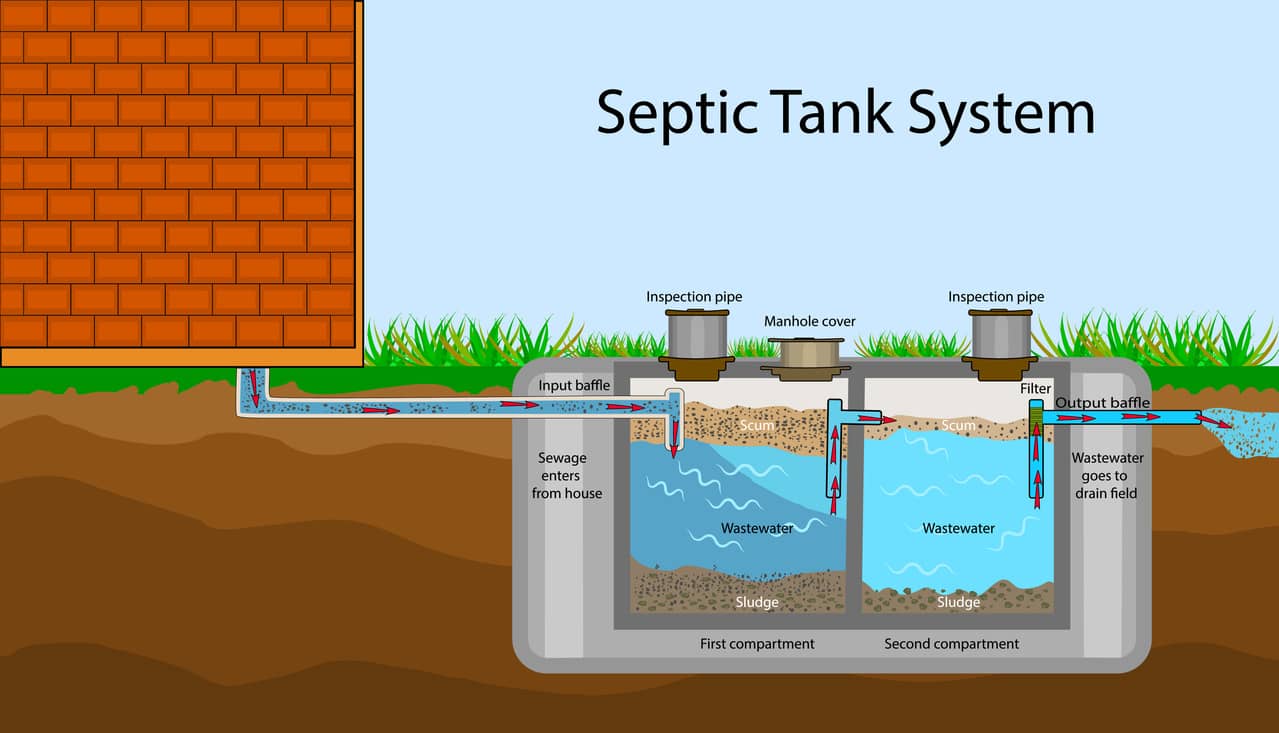ABOUT OUR
Septic Inspection Houston, TX
The Best Septic Inspections in Houston

Septic Inspection
There are several reasons to have a septic inspection done when you are considering purchasing a home. True, this could help in negotiating the price of the home but, more importantly, most states require this to be done by law before ownership changes hands. When you consider that having the septic system inspected will only cost you a couple of hundred dollars but it may save you tens of thousands, then it is a pretty smart investment.
Only a trained professional can recognize the appropriate signs in the testing process that may spell trouble for the septic system, and only a qualified professional can issue a Septic Certification that will be recognized by local governments and financial institutions.
What is Inspected
- Visual evaluation and identification of readily accessible septic system components
- Assessment of visually accessible components
- Assessment of the baffle system
- Assessment of proper operation with the rise
- Assessment of the leach field
- Assessment of foreign matters that may cause clogging, build up, and/or damage to the system.

Frequently Asked Questions
Why is a Septic Inspection Important?
Conducting a septic inspection every year and pumping the septic every 2-3 years is recommended. This allows the inspector to make sure the tank is clean and working and also to ward off any potential problems before they become issues.
Unfortunately, not every homeowner follows this recommendation and doesn’t have it inspected until there are thousands of dollars worth of repairs or replacements needed. Before buying or selling a home or refinancing, an inspection is important and necessary.
How Do I Prepare For a Septic Inspection?
- Choose a licensed septic inspector to come to your home to conduct the inspection. Some home inspection companies are licensed for septic inspection and a good choice as well.
- If you are the homeowner, know the history of the septic, and the last time there was a septic inspection and pumping.
- Know where the septic is located on the property
- Have a list of concerns and questions for the inspector
How Do I Pass the Septic Inspection?
Sludge
This is solid waste that settles to the bottom of the tank. Not emptying out the tank can allow it to pile up and cause excessive levels, as well as clogging and flow into the drain field. Routine pumping will empty it out.
During the inspection, the inspector can lower a stick into the tank to measure the level of sludge. It should not take up more than 1/3 of the tank’s volume.
Scum
Scum happens when oil or grease enters the tank. The idea is for it to flow out and the good bacteria can usually take care of this. If the scum is sticking around in the tank, addressing this issue is important.
Flow
The septic tank should have a natural flow. If this is happening then there are no clogs or backups causing damage to the systems.
The sludge, scum, and flow are the three main areas that are inspected, but each state is different so check your state for requirements.
What if the Septic Inspection Fails?
The inspector will recommend what needs fixing or replacing. Once you correct these issues, you can have another inspection. If this inspection is to purchase or sell a home, speak to the realtor about the amount of time you have for this to be taken care of.
Unfortunately for many, this is a deal-breaker unless fixing or replacing can be quick. Also, talk to the inspection company about the estimate to fix or replace and see if this is negotiable with the buyer or seller.
How Much Does a Septic Inspection Cost?
An inspection cost will vary depending on the size of the tank, the depth of the tank, and any other issues. Here at All Coast, ours are around $350.
How Can I Work on Maintenance For My Septic System?
Maintaining the septic system is important in order to pass septic inspection and to keep a healthy tank. Here is a list of suggestions below. You can also use these when preparing for the inspection.
- Pump septic every 2-3 years as mentioned above
- Inspect around the pump every year for leaks or other issues
- Keep records of maintenance and pumping
- Use low flush toilets, low flow showerheads
- Clean lint regularly from the washing machine
- Check parts around the septic routinely and make note of anything that doesn’t seem to be working
- Only flush human waste and one-ply septic approved toilet paper
- Keep a lookout for leaks and have them addressed. What seems like a small leak can lead to bigger problems. Make a note of it.
- Spread out laundry over several days so there is no excessive use of water. When there is an overuse of water, it can cause the drains to back up and cause the inspection to fail.
- Shrubs and landscape – keep an eye out that there are no trees or shrubs growing near the septic. If there is, roots can grow into it and cause holes. Trees like the nutrients that are in the drain field and want to grow so keep an eye out for them and remove them before you have damage.
- Finally, the tank should be the right size for the number of people living in the home. If it is too small, pumping more often will be needed.
List of a Few Don’ts for Maintaining the Septic
- Do not use bleach and harsh chemicals – these chemicals kill the good bacteria that the septic needs. Clogs and backups can happen when the good bacteria doesn’t break down the matter.
- Don’t use the garbage disposal– it may seem like a good idea to use it, however, not in a home with septic. It does not break down the matter and can cause the septic to clog.
- Don’t drive on the drain field and keep rainwater drainage systems off the area. This can cause problems with the wastewater and clogging or backups.
Replacing a septic system can cost from $3,000- $10,000 so maintenance is essential. A system can last 25-30 years if taken care of properly.
Where We Service
We complete home inspections in these counties: Barzoria, Fort Bend, Galveston, and Harris.
Houston, TX | Sugarland, TX | League City, TX | Angleton, TX |Lake Jackson, TX | Missouri City, TX | Alvin, TX | Baytown, TX | Pasadena, TX | Rosenburg, TX | Dickinson, TX
What Our Customers Say About Us!

All Coast Inspections is a veteran-owned business. We also offer discounts for veterans, first responders, and teachers.

